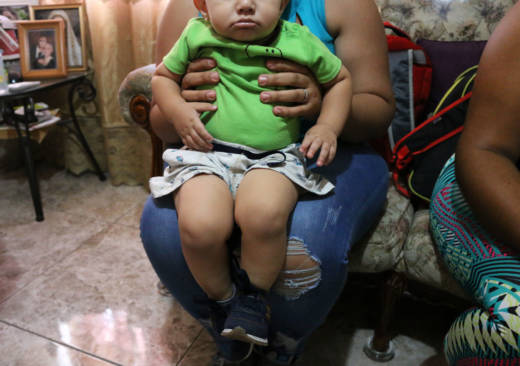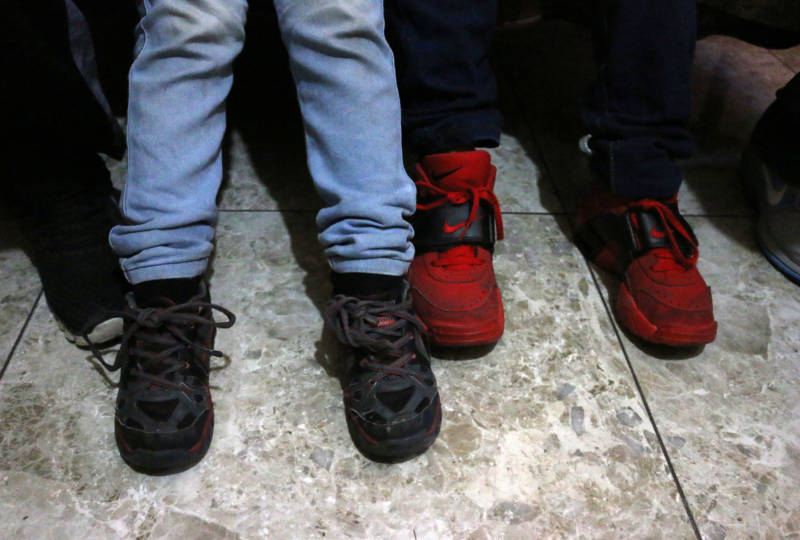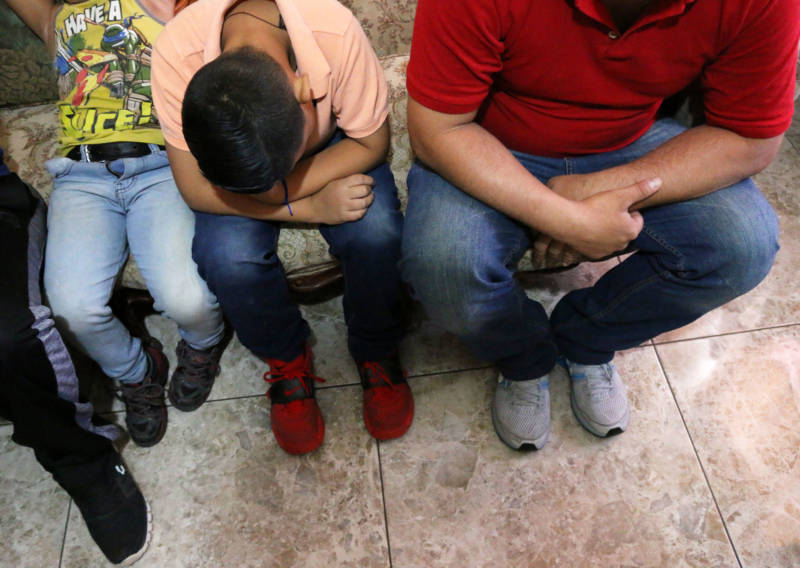A Mexican woman held in U.S. Customs and Border Protection custody for six days beginning in late June described poor conditions and warnings that her children could be taken from her at the Calexico West Port of Entry -- two hours east of San Diego -- where she was detained with other migrant families waiting for their asylum claims to be processed. The warnings came more than a week after President Trump signed an executive order ending family separations.
Thirty-year-old Elizabet, her husband and their three children -- ages 1, 5 and 9 -- fled their home in the Mexican state of Michoacán earlier this summer after criminals murdered her brother and later threatened to kill her, too. KQED is not disclosing the family’s full names because they fear criminal groups could trace them to their current location in Mexico.
Elizabet and her family approached CBP officers at the port of entry in Mexicali on June 28 and asked for asylum. Elizabet said the family was then taken in for processing. She and her children were housed in a large room with other women and children. Most were also seeking asylum.
According to Elizabet, she and her children were fed spaghetti with meatballs that smelled “horrible,” and bread so stale that it couldn’t be stabbed with a fork. She said detainees slept on bug-infested mats on the floor and were allowed only one blanket per person, despite bitter temperatures due to the air conditioner blasting cold air throughout the day and night.
Elizabet said her children got diarrhea from eating the food they received. She said she saw another child who appeared to have a skin irritation around his groin and abdomen. One mother asked officers to turn down the air conditioning because the children had sore throats, but the officer declined.


